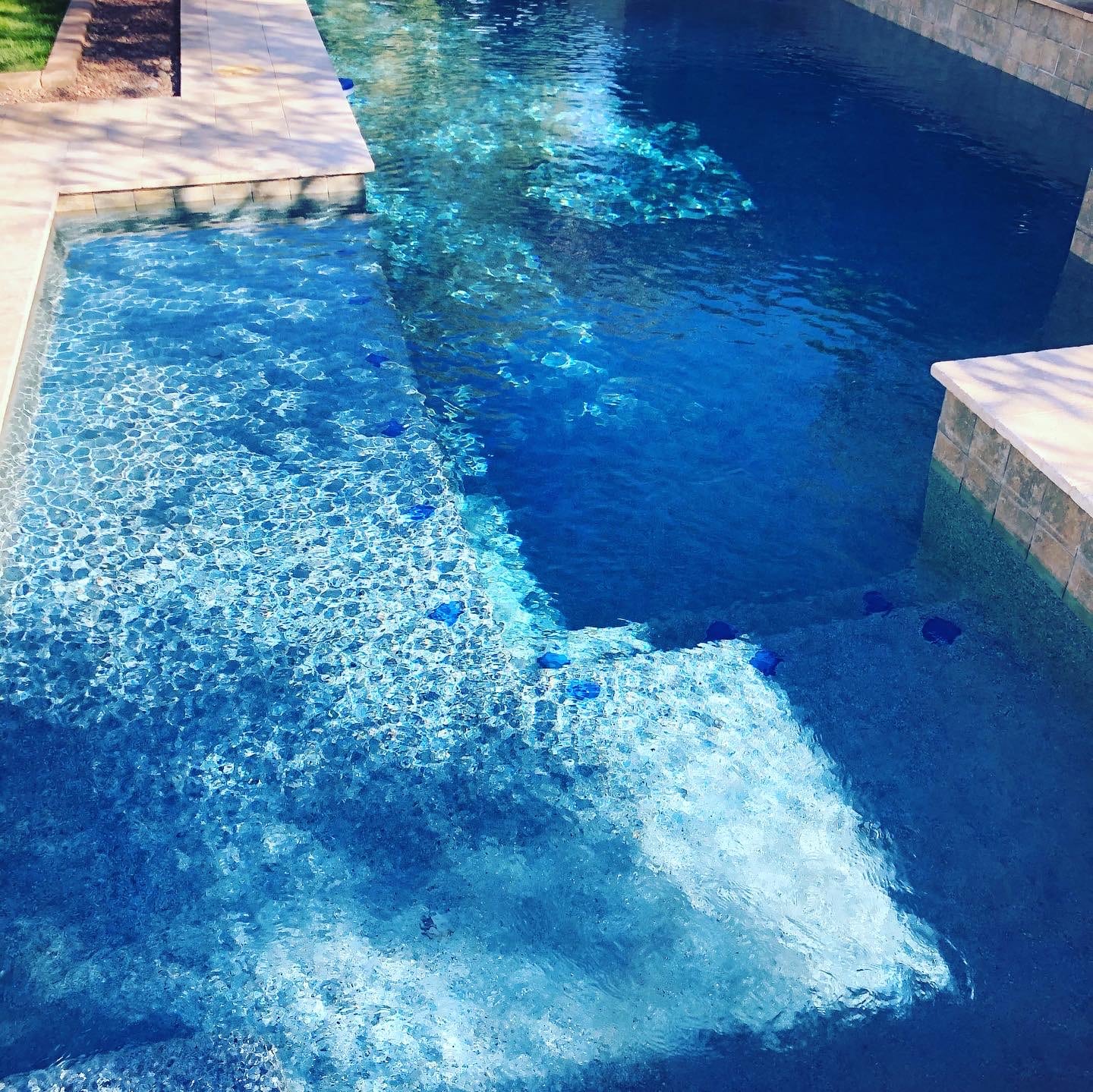
What is CYA & How Does it Affect My Pool?
Owning a pool is one of the most rewarding aspects of homeownership—cooling off after a hot Arizona day and watching the kids make memories with friends. But when your pool starts eating into your wallet, you may not begin to think this investment wasn’t worth it. Unfortunately, pool maintenance requires a lot of time and effort, especially when CYA (cyanuric acid) chemicals are involved. As a beneficial component of protecting your waters from contaminants, CYA chemicals have a way of causing more harm than good when not monitored properly.
Thankfully, the professionals at Good Life Pool Care have the solution. In this blog, we’ll explain what exactly CYA chemicals are, how they work in tandem with other chemicals in your pool, and what you can do to ensure these levels don’t get dangerously high.
What is Cyanuric Acid?
Before we can discuss what cyanuric acid is and how it benefits your pool, we first need to explain the way in which chlorine cycles through your system. Chlorine, in its natural form, is unstabilized—it degrades quickly when exposed to sunlight. Known as a pool conditioner, Cyanuric Acid (CYA) is a commonly used chlorine stabilizer that protects your pool from the sun’s ultraviolet rays to reduce chlorine loss.
A majority of chlorinating tablets already include CYA within them, proving to be more effective than the alternative chlorinating liquid products some homeowners choose to use. When liquid chlorine is dumped into a pool, an additional stabilizer will need to be added in order to help the chlorine last as long as possible. CYA is a beneficial additive for all your pool cleaning needs, saving you money in the long run.
What Happens When Your Cyanuric Acid Is Too High?
The ideal levels for CYA are 30-50 parts per million (PPM), depending on whether or not you have a saltwater pool. If the levels are higher than 70 PPM, the effectiveness of your chlorine levels will reduce drastically. In order to bring the CYA levels back down to a neutral level, you’ll need to dilute your water by partially draining and refilling your pool.
When your CYA levels become too high, it not only renders your chlorine ineffective but can cause further damage, including:
- Damage the plaster finish on pool walls
- Distort alkalinity readings
- Compromise the sanitation of your water
Why Caused My CYA Levels to Spike?
As a pool owner, you’ve likely developed a routine for adding chemicals to your backyard oasis—chlorine included. Stabilized chlorine comes with trace amounts of CYA already included in the solution, helping to protect your sanitizer from being destroyed by the sun and remaining effective. Unfortunately, as you continue to add stabilized chlorine into your water, the levels of cyanuric acid can build up over time, regardless of fluctuating chlorine levels.
Lowering the Levels of CYA
There are a few ways in which you can lower the levels of CYA in your pool. As previously mentioned, you can partially drain and refill the water in order to rebalance the chemicals. But you can also try a chemical cyanuric acid reducer or a reverse osmosis filter system. Both are effective in clarifying the CYA levels; however, they do come with their own set of drawbacks.
CYA reducers are highly expensive and aren’t the most reliable source for a solution—they won’t be 100% effective if you’ve added various other chemicals within the same week. In contrast, a reverse osmosis filter can dilute your water effectively but creates a large amount of water waste. Additionally, reverse osmosis filters are rather expensive, and you can expect to spend a few thousand dollars for the entire system.
Rely on the Professionals At Good Life Pool Care
Rather than trying your hand at a hopeful solution, put your faith in one that works—Good Life Pool Care’s green-to-clean service. Our professionals have the experience to accentuate the clear waters of your pool and keep them sanitized properly all year round. At Good Life Pool Care, we have an extensive understanding surrounding CYA and know exactly how to handle this chemical. When you call us to discuss a potential chemical problem, we’ll arrive ready to perform an in-depth analysis of your pool and communicate effectively what our most cost-effective solution would be.
Whether you seem to be spending too much time and money keeping your pool crystal clear or you have noticed a misread on your test tablets, our professionals are here to help. To learn more about our green-to-clean services, as well as our weekly pool services, contact us today at (480) 269-5620.